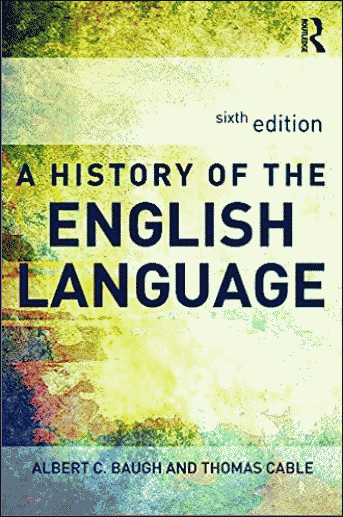hellog〜英語史ブログ / 2024-02-05
01 02 03 04 05 06 07 08 09 10 11 12 13 14 15 16 17 18 19 20 21 22 23 24 25 26 27 28 29
2024-02-05 Mon
■ #5397. 文法上の「性」を考える --- Baugh and Cable の英語史より [bchel][gender][oe][noun][category][voicy][heldio][notice][hel_education][link]
昨年7月より週1,2回のペースで Baugh and Cable の英語史の古典的名著 A History of the English Language (第6版)を原書で精読する Voicy 「英語の語源が身につくラジオ」 (heldio) でのシリーズ企画を進めています.1回200円の有料配信となっていますが第1チャプターに関してはいつでも試聴可です.またときどきテキストも公開しながら無料の一般配信も行なっています.これまでのバックナンバーは「#5291. heldio の「英語史の古典的名著 Baugh and Cable を読む」シリーズが順調に進んでいます」 ([2023-10-22-1]) にまとめてありますので,ご確認ください.

今までに41節をカバーしてきました.目下,古英語を扱う第3章に入っています.次回取り上げる第42節 "Grammatical Gender" は,古英語の名詞に確認される文法上の「性」,すなわち文法性 (gender) に着目します.以下に同節のテキストを掲載しておきます(できれば本書を入手していただくのがベストです).
42. Grammatical Gender. As in Indo-European languages generally, the gender of Old English nouns is not dependent on considerations of sex. Although nouns designating males are often masculine, and those indicating females feminine, those indicating neuter objects are not necessarily neuter. Stān (stone) is masculine, and mōna (moon) is masculine, but sunne (sun) is feminine, as in German. In French, the corresponding words have just the opposite genders: pierre (stone) and lune (moon) are feminine, while soleil (sun) is masculine. Often the gender of Old English nouns is quite illogical. Words like mægden (girl), wīf (wife), bearn (child, son), and cild (child), which we should expect to be feminine or masculine, are in fact neuter, while wīfmann (woman) is masculine because the second element of the compound is masculine. The simplicity of Modern English gender has already been pointed out as one of the chief assets of the language. How so desirable a change was brought about will be shown later.
文法性に関する話題は hellog でも gender のタグを付した多くの記事で取り上げてきました.そのなかから特に重要な記事へのリンクを以下に張っておきます.
・ 「#25. 古英語の名詞屈折(1)」 ([2009-05-23-1])
・ 「#26. 古英語の名詞屈折(2)」 ([2009-05-24-1])
・ 「#28. 古英語に自然性はなかったか?」 ([2009-05-26-1])
・ 「#487. 主な印欧諸語の文法性」 ([2010-08-27-1])
・ 「#1135. 印欧祖語の文法性の起源」 ([2012-06-05-1])
・ 「#2853. 言語における性と人間の分類フェチ」 ([2017-02-17-1])
・ 「#3293. 古英語の名詞の性の例」 ([2018-05-03-1])
・ 「#4039. 言語における性とはフェチである」 ([2020-05-18-1])
・ 「#4040. 「言語に反映されている人間の分類フェチ」の記事セット」 ([2020-05-19-1])
・ 「#4182. 「言語と性」のテーマの広さ」 ([2020-10-08-1])
・ Baugh, Albert C. and Thomas Cable. A History of the English Language. 6th ed. London: Routledge, 2013.
2026 : 01 02 03 04 05 06 07 08 09 10 11 12
2025 : 01 02 03 04 05 06 07 08 09 10 11 12
2024 : 01 02 03 04 05 06 07 08 09 10 11 12
2023 : 01 02 03 04 05 06 07 08 09 10 11 12
2022 : 01 02 03 04 05 06 07 08 09 10 11 12
2021 : 01 02 03 04 05 06 07 08 09 10 11 12
2020 : 01 02 03 04 05 06 07 08 09 10 11 12
2019 : 01 02 03 04 05 06 07 08 09 10 11 12
2018 : 01 02 03 04 05 06 07 08 09 10 11 12
2017 : 01 02 03 04 05 06 07 08 09 10 11 12
2016 : 01 02 03 04 05 06 07 08 09 10 11 12
2015 : 01 02 03 04 05 06 07 08 09 10 11 12
2014 : 01 02 03 04 05 06 07 08 09 10 11 12
2013 : 01 02 03 04 05 06 07 08 09 10 11 12
2012 : 01 02 03 04 05 06 07 08 09 10 11 12
2011 : 01 02 03 04 05 06 07 08 09 10 11 12
2010 : 01 02 03 04 05 06 07 08 09 10 11 12
2009 : 01 02 03 04 05 06 07 08 09 10 11 12
最終更新時間: 2026-01-27 10:29
Powered by WinChalow1.0rc4 based on chalow